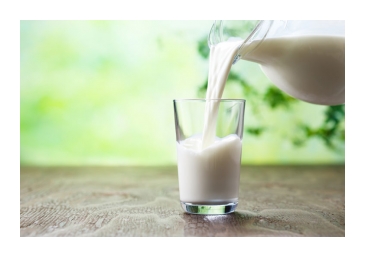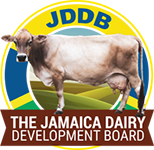What is real fresh milk?
Milk is a nutrient-rich liquid food produced by the mammary glands of female mammals. It is the primary source of nutrition for young mammals, including breastfed human infants before they are able to digest solid food. Milk from animals including cattle and goats, is used as food by humans.
Why is milk important and what are some of its benefits?
Milk is referred to as a super food as it is a great source of calcium, protein, vitamins and minerals. Milk contains a variety of nutrients that are beneficial to both human health and wellness.

Let’s look at Milk Composition
| Milk Composition | Approximate % |
|---|---|
| Water | 86.5 |
| Milk Sugars | 4.9 |
| Fat | 4.4 |
| Protein | 3.5 |
| Vitamins and Minerals | 0.7 |
Calcium: builds healthy bones and teeth, maintains bone mass
Protein: source of energy, builds and repairs tissue
Potassium: helps maintain blood pressure
Phosphorous: help strengthen bones and generate energy
Vitamin D: help maintains bones
Vitamin A: help keep skin and eyes healthy
Vitamin B12: keep the body’s nerve and blood cells healthy
Riboflavin: needed for growth and overall health.
Milk benefits for Children
Milk is recommended for children twelve (12) months and older. Milk helps to supply protein, calcium, vitamin D and other nutrients to their diet. These nutrients help to meet their growth and development needs especially calcium for bone growth. It is recommended that children, both male and female, ages one – three (1-3) consume approximately 350 mg of calcium per day, ages 4 -6, 450 mg and ages 7 – 10 550 mg/day. It is also recommended that children drink 16 – 24 ounces (473 -591 ml) of milk per day to meet their calcium needs.

Milk benefits for Teens
Teenage years represent the change from childhood to adulthood. There are numerous physical changes which a teenager undergoes which require energy and nutrients. In their teenage years, humans have an increase need for calcium. Milk, cheese and yogurt are great sources of calcium, phosphorus and protein which are important for bone growth and development. Bone mass is built between 12 -14 years old for girls and 13-15 years for boys. The intake of calcium and vitamin D rich foods, to help optimize bone growth. Milk also contains other essential nutrients which are important for healthy blood and immune systems, healthy skin, muscle growth and repair of body parts.
Teens require up to three cups of skim or low-fat milk per day.
Milk benefits for Elderly
For the elderly, milk means more than just nutrition. Milk is a good source of Vitamin D, calcium and potassium. Vitamin D is important in maintaining healthy bones as it boost the absorption of calcium. This aids with the reduction of osteoporosis and bone fracture.
Calcium is essential for building and maintaining bone strength in the elderly. One cup of nonfat milk provides almost 300 mg of calcium which is half the requirement for the elderly.
High blood pressure is most common among the elderly. Low levels of potassium and high levels of sodium in the blood can lead to high blood pressure which increases the risk of heart attack and stroke. Milk is a good source for potassium; increasing the intake of potassium can lower the risk of high blood pressure.
Milk benefits for Expectant and Lactating Mothers
 Milk provides several benefits for mothers and also her unborn child. These include:
Milk provides several benefits for mothers and also her unborn child. These include:
- Improved heart health
- Prevent the loss of bone mass – calcium is important in preventing osteoporosis as it strengths and maintains bone strength. It is required that an expected mother consumes three to four glasses of milk to meet her calcium needs per day. One glass of nonfat milk offers approximately 309 mg of calcium. Approximately 50 to 330 mg of calcium supports the development of the fetal skeleton.
- Milk helps mothers to feel better with less gas, heart burn and reduced muscle cramps.
- The control of blood sugar and reduced risk of diabetes as milk sugar (lactose) is absorbed at a slower rate.
- Milk contains vitamins such as Vitamin B12 which improves nerves and blood health of the expectant mother.
- Milk helps to boost immunity- whey proteins in milk help to prevent infection and maintain liver health to clear toxins from the body.
- The optimum intake of protein helps to support the baby’s growth and cells to multiply rapidly. The daily requirement of protein for expectant mothers is 1.1g/kg/body weight/day. One glass of milk provide 8 -9 g of protein, a daily intake of three glasses of low fat milk can help meet one third of their daily protein requirement.
What are some locally available fresh milk products that cater to a variety of dietary considerations and what group of persons they are best suited for?
There are a number of locally available fresh milk products that caters to a variety of dietary considerations. These include:
- Full Cream Milk - This is the best choice for adults over 70 years. It provides high energy and high protein in the diet of the elderly.
- Low-fat Milk - Low-fat milk contains 1% or less fat. It provides protein, calcium and essential nutrients; the fat content however is lower.
- Non-Fat Milk/Zero Fat Milk - Non-fat milk is a great choice if you want to reduce on calories and fat. It contains calcium, protein and all essential nutrients as regular milk with added vitamins.
- Lactose Free Milk - Lactose free milk contains lactase, an enzyme which breaks down milk sugar lactose. This allows the milk to be easily digested. Lactose free milk contains the same amount of calcium, proteins and vitamins as regular milk. Drinking lactose-free milk can prevent symptoms of lactose intolerance and is the best choice for persons with such condition.
- Flavoured Milk - Flavoured milk is made from milk with added flavouring. The most common flavours used include strawberries, chocolate, vanilla, peanut and cherries. Flavours enhance the taste of regular milk making it enjoyable and nutritious for children


